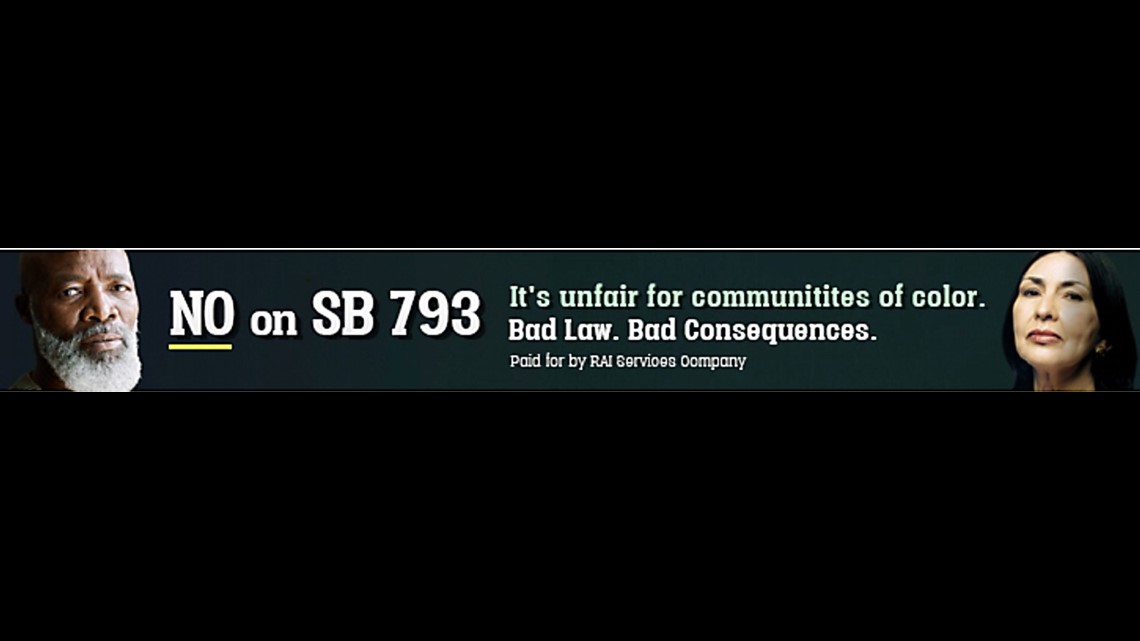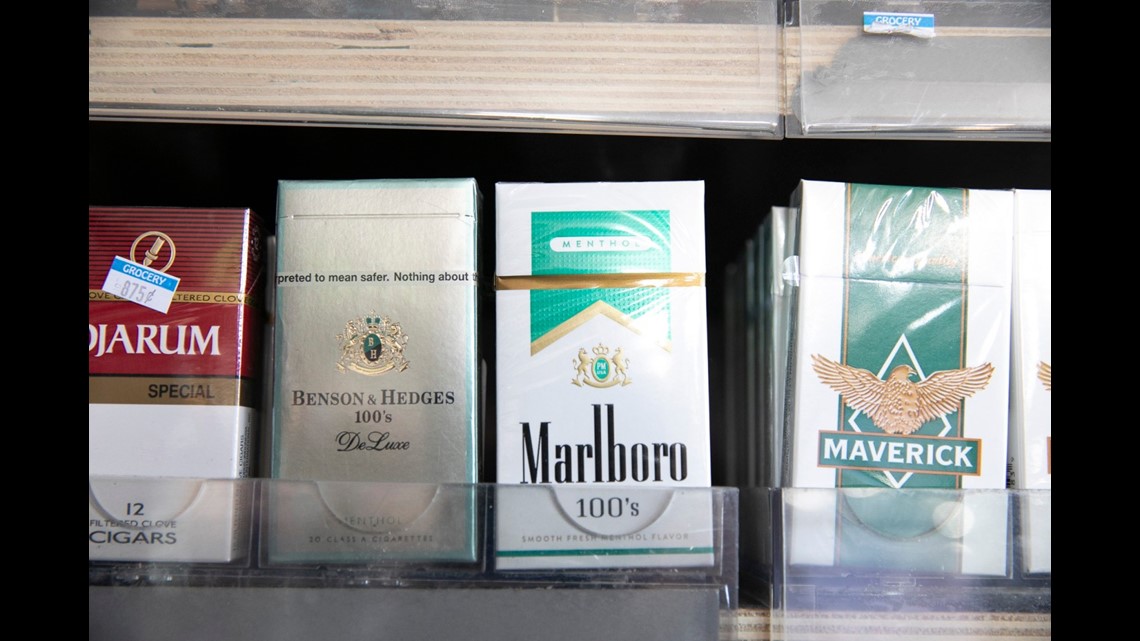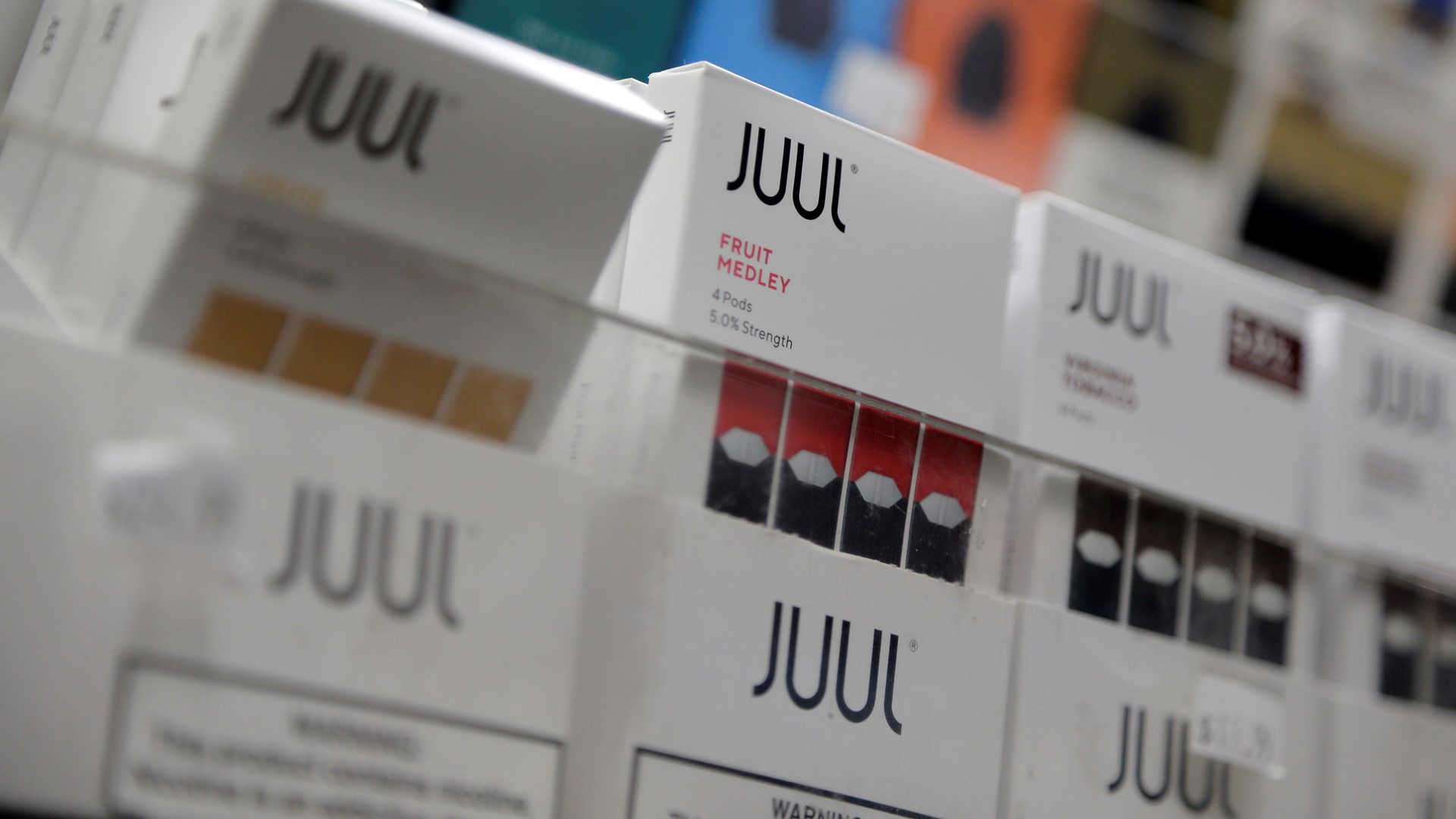SACRAMENTO, Calif. — Cotton candy vape, tropical fusion cigarillos and menthol cigarettes will be extinct in California after a bill aimed at stopping kids from getting addicted to tobacco sailed through the Legislature today— and the governor almost immediately signed it.
Even so, it’s been an uphill battle for the bill, whose supporters have tried to ban flavored tobacco statewide before and failed. This time, the bill was helped along by skyrocketing vaping among teens, several marijuana vape-related deaths last year, concerns about respiratory health amidst the COVID-19 pandemic, a shortened legislative session and a supportive governor.
That still didn’t stop tobacco companies from waging an intense opposition campaign that called the proposal discriminatory toward Black and Latino adult smokers, who prefer menthols.
The bill, SB 793, bans the sale of all flavored tobacco products – from bubblegum to mango to menthol. The prohibition includes pods for vape pens, tank-based systems, menthol cigarettes and chewing tobacco. It initially included premium cigars and hookah tobacco, but those were later exempted from the proposal.
Menthol flavor, including menthol cigarettes, were the focus of the pushback. Funded by tobacco companies, the opposition campaign alleged that the bill unfairly goes after products preferred by smokers of color while leaving hookah and premium cigars untouched.
Phil Gardiner, co-chair of the national African American Tobacco Control Leadership Council, and other supporters were on the Zoom call with the governor today when he signed the bill.
Gardiner told CalMatters it was “fabulous” to see after years of trying to limit tobacco use.
“The tobacco industry has lured our kids into addiction for too long, using menthol and other flavors,” he said in a statement. “By signing SB 793 the Governor sent a strong message to the tobacco industry that California’s kids are off-limits.”
Critics of the proposal were disappointed they didn’t have more time to try to persuade Gov. Gavin Newsom not to sign the bill.
“It was a mistake,” said Rev. K.W. Tulloss, president of the Baptist Ministers Conference of Los Angeles and Southern California. “We hoped (Newsom) would have looked into the unintended consequences. I wish they would have heard us.”
Earlier in the day, Newsom had signaled his strong support for the bill, authored by San Mateo Democratic Sen. Jerry Hill. At his semi-daily news conference, Newsom stated he had been very clear about his “absolute condemnation of this tobacco industry that continues to find ways to target our youth.
“It will be a point of deep pride and personal privilege as a father of four and as someone who’s had many, many family members die at the hands of the tobacco industry to sign that bill,” he said.
Hill called the signing of the law a “huge win for our kids and the health of our communities throughout California.” Hill was in a committee meeting when Newsom gave him a video call to say he was going to sign.
“This is not a race issue, this is an economic issue that has always pimped people of color and used them for benefit," said San Diego Democratic assemblymember Shirley Weber.
A confluence of factors helped push the measure forward this year, including a rare move by Assembly Speaker Anthony Rendon, a Los Angeles Democrat, who lent his name to the bill as a coauthor in a show of support.
In recent months, opponents shifted the focus from children to spotlighting African-American smoking habits, making the issue a matter of personal freedom and civil rights.
Democratic strategist Dana Williamson said it’s a lobbying tactic used by companies to divert attention from the overall proposal. She said that companies often enlist and fund local advocates and groups to rally their cause.
“They are pivoting and saying this isn’t just about flavors. It’s about X, Y and Z,” she said. “They are not going to jump up and down and scream ‘don’t ban flavors for kids.’”
Online and print ads accused the bill of being bad for communities of color who use menthol at higher rates than other groups. According to the Centers for Disease Control and Prevention, African-Americans have the highest percentage of menthol cigarette use compared to other groups, with more than 80% of Black smokers choosing menthol cigarettes.


One online banner ad stated: “It’s unfair for communities of color. Bad law. Bad consequences.” The ad was paid for by RAI Services, a subsidiary of Reynolds American, which is also the parent company of R.J. Reynolds Tobacco, RJReynolds Vapor, American Snuff Co. and Santa Fe Natural Tobacco Co.
But health groups and some African-American leaders, including the African-American Tobacco Control Leadership Council, called the opposition campaign offensive and wrong.
“I am insulted that the tobacco industry would believe that mentholated cigarettes are a part of the African-American culture,” said Weber, while encouraging her Assembly colleagues this week to vote for the bill. “This is not a race issue, this is an economic issue that has always pimped people of color and used them for benefit.”
Supporters contend the new law will decrease smoking rates— especially in the Black community, where people experience higher rates of smoking-related illnesses such as heart disease, hypertension and lung cancer.
“Menthol cigarettes and flavored cigars have been and are the main vectors of death and disease in the African American community,” said Gardiner. “There is nothing better to do now to show that Black lives matter than to get menthol cigarettes out of our community.”
Hill said he fought to keep menthol in the bill because over half of youth smokers ages 12 to 17 use menthol cigarettes, a higher rate than any other age group. Among Blacks, 94 percent of youth who smoke use menthol products; among adults that figure is 85 percent, according to Tobacco-Free Kids.


In response, tobacco companies waged a battle against the proposal that, now that it’s signed into law, will significantly affect their business in the Golden State. Tobacco companies, including Reynolds and Altria, sent mailers to voters’ homes, urging them to tell their state representatives to vote against the bill, and bought print and online ad space.
In a statement, Kaelan Hollon, spokesperson for Reynolds American, a tobacco company, said the ban unfairly targets adults who prefer menthol cigarettes and treats them differently than those who prefer flavored hookah or cigars.
“A crackdown on increased illegal sales resulting from a menthol ban would also strike communities of color, with lasting negative impact,” she said in a statement.
Some African-American religious leaders, including the Inglewood Area Minister’s Association, Pastors of Compton and the Baptist Ministers Conference of Los Angeles and Southern California, sent opposition letters arguing the bill criminalizes Black smokers and will create an illegal market for menthols.
Critics don’t dispute the health issues but say it comes down to civil rights.
“I don’t believe in restricting or killing the choice of the people,” said Tulloss. “We have seen hookah and cigars and other flavored products getting pulled out of the bill, and those that African Americans choose to utilize are left in.”
Tulloss is co-founder of Neighborhood FORWARD, a group started this year that campaigned against the bill. Tullos said he did not know if it received funding from tobacco companies.
Despite what lawmakers say, Tulloss said he believes this could lead to increased encounters between Blacks and law enforcement over the illicit sale of menthol cigarettes, or questions about the use or possession of the smokes. He referred to the death of Eric Garner in New York, who was selling cigarettes, at the hands of police.
“It was a mistake. We hoped (Newsom) would have looked into the unintended consequences. I wish they would have heard us,” Tulloss said.
Police agencies including the California Statewide Law Enforcement Association also opposed the bill. The Association sent a letter arguing that the ban would allow criminal networks to smuggle and sell the products in California.
While California is not the first state to adopt such a prohibition, the new law will be the strongest in the country, said Stan Glantz, UC San Francisco professor of medicine and former director of the Center for Tobacco Control Research and Education.
The statewide ban will unify a patchwork of ordinances around California because at least 60 cities and counties have already prohibited flavors or the sale of e-cigarettes. In January, the country’s only e-cigarette sales ban went into effect in San Francisco.
“It’s going to accelerate the movement toward these kinds of laws all over the world,” Glantz said.
Currently, at least four other states have passed some legislation – New Jersey, New York, Rhode Island and Massachusetts – but they are not as robust as California’s. A number of other states adopted temporary bans last year when people were hospitalized or several died after vaping.
Retailers will be responsible for adhering to the ban by stopping the sale of flavored tobacco by January.
In unincorporated Los Angeles County ACE Smoke shop owner Jacob Grair said flavored products, including menthol, account for about 80% of his business.
Grair said he agrees that children should not have access to the products. The state, he said, could have implemented steeper fines and enforcement on retailers that sell to kids, and created more education programs.
“I’m a supporter of Black Lives Matter but I’m also a supporter of someone being 21 and getting to choose for themselves,” he said. “This affects people’s choice.”

